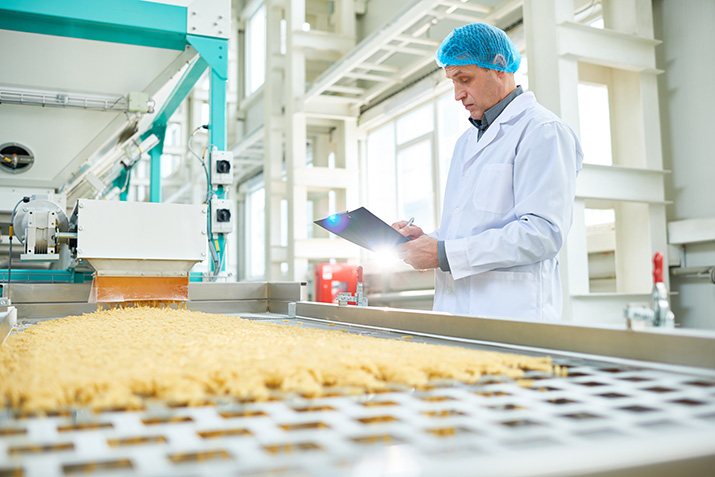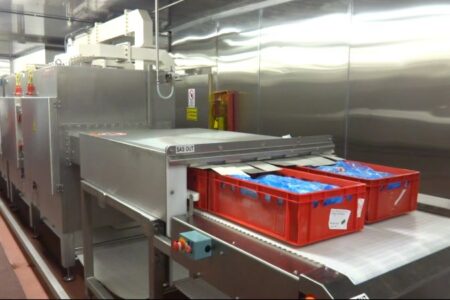Surviving the ‘new normal’: investing in agile technologies is key to a resilient food and beverage industry

By Brian Foster, head of Industry Finance at Siemens Financial Services, UK
The economic impact of the current pandemic is expected to be significant and prolonged. This year, the food and beverage industry has had to rapidly adapt to changing circumstances and patterns of consumption – be it suppressed or increased demand.
Companies who had invested in agile technologies and machinery were best placed to react to shifting market demands with optimal flexibility when the crisis hit. Companies with automated and digitalised production units were less affected by the lockdown-induced staff shortages, for instance, making them more resilient. Surviving recent disruptions required business agility on all fronts – and companies that weren’t sufficiently equipped for a drop in demand were faced with a lack of cold storage for perishables, for instance. Conversely, manufacturers equipped with ‘digital twins’ were able to simulate coronavirus impact scenarios and react quickly and effectively in volatile situations.
The challenges inhibiting investment, however, are considerable. Our latest report “Rising to the new challenge: the role of Smart Finance in helping navigate the economic ‘new normal’” conservatively estimates that over the next five years $567 billion in investment funds are needed for digital transformation alone in the global food and beverage industry. Nonetheless, the incremental increase in annual revenue that manufacturers can stand to gain from digitalising their processes is significant. Research from Siemens Financial Services (SFS) has shown that manufacturers can stand to gain an additional 6.3 – 9.8% of their annual revenues from bringing digitalisation into their manufacturing operations.

SCADA Food and Beverage mit Digital Layer
Even as the crisis recedes, food and beverage companies will need to integrate business agility into their operations if they are to cope with continued uncertainty and volatile markets. Looking to future competitiveness and resilience in the “new normal,” sensor technology and machine learning are already being used by the brewing industry to predict when beer moves from fermentation to the free rise phase – effectively “teaching” technology to predict when it is ready for the next stage of production. Similarly, artificial intelligence (AI) has been employed to identify hazards in milk or detect machinery faults before they occur. All of these applications help to minimise downtime, prevent spoilt batches and increase the operational efficiency of the production line.
Aware of the enhanced operating agility and efficiency that digitalisation offers, 74% of SMEs in the industry have already made steps towards improving production processes through digital technologies. In times of crisis, however, investment appetite tends to shrink as companies feel a need to focus on shorter-term returns and on staying afloat rather than looking to modernise existing equipment through longer-term investments. That being said, commentators suggest that companies who continue to invest even throughout difficult economic situations typically emerge ahead of their competitors. This means that the pandemic and its economic aftermath have in fact made the importance of investing in new technology more important – not less. Previous research from SFS estimated the window of opportunity left to gain competitive advantage from investing in digitalisation to be 5-7 years away. After this point, manufacturers having not invested may struggle to ever catch-up.
To provide food and beverage manufacturers with a financially sustainable path through the current challenging environment, smart financing models are emerging. Smart finance for digital transformation in manufacturing tends to come from integrated specialist financiers, where the funder understands the technology, the sector, the applications and the operating pressures. Using this knowledge, they can create and align financing structures that are focused on achieving recognisable and clearly identified desired business outcomes.
The consensus among global analysts is that it is critical to maintain new technology adoption even in times of economic difficulty. Moving towards smart factory technologies can put manufacturers in a better position to bounce back from the crisis and minimise the impact of future changes in consumer behaviours.



